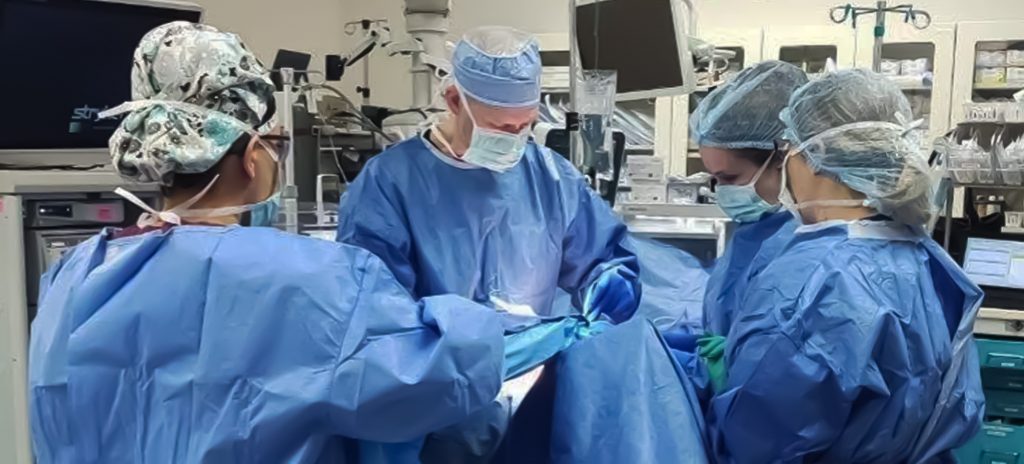Colonoscopy
A colonoscopy is an examination of the colon or large intestine. It is an exam that is performed with intravenous sedation to prevent discomfort or awareness. Patients do not remember the exam nor have any discomfort with the exam. The purpose of a colonoscopy is to identify or prevent diseases of the colon. These include inflammatory bowel disease, diverticulosis/diverticulitis, colon polyps and colon cancer. Most routine screens are done on patients at the age of 50 or above. This age can be less if there are family histories of colon cancers or polyps.
How do I prepare for my colonoscopy?
In order to have a successful colonoscopy, you will need to take a bowel preparation. Typically, this occurs the day prior to the procedure and the morning of the procedure. In addition, patients will need to be on a clear liquid diet the day before the procedure and the morning of the procedure. No solid food and no thickened liquids are allowed. You will be given specific instructions on what is and isn’t allowed. At the time of the colonoscopy, the colon will need to be completely clean. This allows your surgeon to have the lowest chance possible of missing important findings.
What should I expect for surgery?
During your colonoscopy, you are placed on your left side down. After sedation, the colonoscope is inserted into the anus and advanced through the remainder of your colon. Important landmarks, such as the appendix and the ileocecal valve (junction of the colon to the small intestine), are confirmed. The colon is kept inflated with carbon dioxide during the examination to distend the walls so that small lesions are more readily identified. If a lesion or polyp is identified, usually these can be removed with small instruments placed through the working channels on the endoscope. The lesions are suctioned through the scope and filtered out. They are then sent to a pathologist for evaluation. Following complete examination, the carbon dioxide is removed and you are awakened from anesthesia.
What will my recovery be like?
Afterwards, you will awaken and be discharged to home. It is rare that you would have any discomfort following the procedure. You will need a driver to drive you home. You will feel normal for the rest of the day. We do not allow driving or work following anesthesia. After a good night’s rest, you may resume normal activities as usual the next day.
If biopsies are taken or findings that need to be discussed, you will have an appointment with Dr. Biggs scheduled for you prior to discharge. Routine examinations are scheduled every 7-10 years. If you have polyps or other findings, your surgeon will discuss with you when is the appropriate time to return for repeat screening.

” The purpose of a colonoscopy is to identify or prevent diseases of the colon. These include inflammatory bowel disease, diverticulosis/diverticulitis, colon polyps and colon cancer.“
Kind words from our patients
“Wonderful team! Very welcoming, caring and informed staff; they made my procedure easy to go through. I would recommend him and his staff 100%.”
– Paula
Contact Us
Office
Dr Rodney Biggs MD
530 Running W Dr Ste 120
Gillette, WY 82718
Office Hours
Mon-Thu: 8:30am – 4:30pm
Fri: 8:30am – 12:00pm
Sat & Sun: Closed
